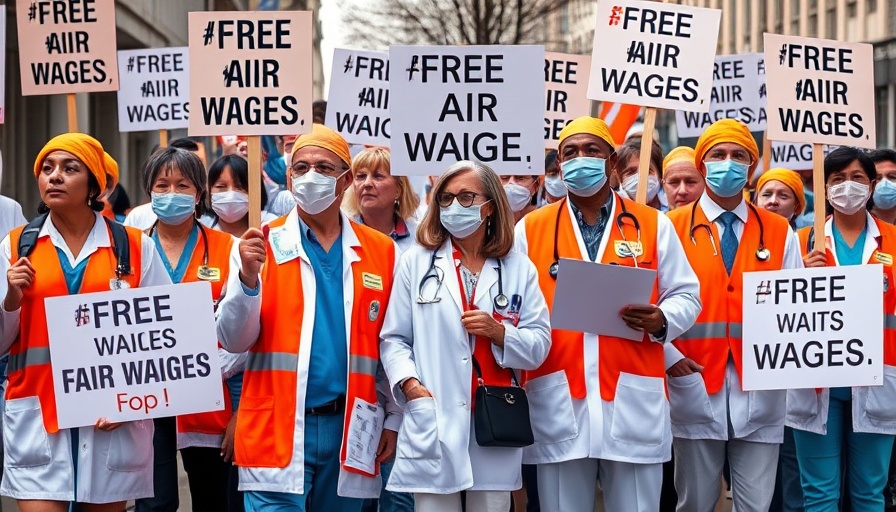
Nurses push back against inadequate pay deals
Nurses in England are making their voices clear: the proposed 3.6% pay rise is not enough. As the Royal College of Nursing prepares to announce the results of a consultative vote, all signs point to an overwhelming rejection of the deal. This stance reflects a simmering tension between health professionals and the government, particularly as the NHS grapples with ongoing challenges.
The reality of nurse valuations
It's no secret that nursing is one of the largest sectors within the National Health Service (NHS). Yet, despite this, nursing staff continue to feel undervalued and overworked. The current proposal does not reflect their on-the-ground reality, especially compared to pay increases afforded to other professions like doctors and teachers. Nursing union representatives have described the discrepancy as "grotesque," illustrating a bitter divide within the public sector.
What this resistance means for the NHS
An overwhelming rejection of the pay deal could be the tipping point leading towards formal strike actions later in the fall. The Royal College of Nursing has made it clear: healthcare workers are ready to stand united against what they deem unfair financial recognition of their contributions. They demand not just a revision of this pay rise but a more comprehensive look at pay structures within the NHS.
Background: the tipping point for strikes
The backdrop to these current negotiations is the broader public sector's unrest over pay. Following on from the GMB union's similar rejection of the government's offer, frustration is building among various health workers, including ambulance crews and resident doctors, who recently embarked on a five-day strike. This wave of discontent warns of a large-scale disruption if the government continues to ignore the needs of its healthcare workforce.
Emotional impact of potential strikes
When hospitals face walkouts, it’s not just the healthcare professionals who are affected. Already, patients are feeling the impact, with surgeries and treatments canceled as a direct result. Frustration and anger are palpable among patients who see these strikes not just as political maneuvers, but as threats to their health and well-being. Individuals are left wondering if the system truly values their needs.
Will the government listen?
Health Secretary Wes Streeting has an uphill battle ahead. With rising discontent, the call for urgent dialogue is more critical than ever. Negotiating over the summer could potentially avert industrial action in the near future. But this hope rests on a willingness from ministers to listen and engage with valid concerns raised by nursing professionals.
Take action: the future is in our hands
As we brace for what could be a pivotal moment in the landscape of healthcare in the UK, it’s essential for concerned citizens, especially those in Leicestershire, to stay informed and vocal. Advocating for healthcare workers raises awareness of the challenges they face daily. Consider reaching out to local representatives to share concerns or attending community forums to join the conversation. United voices can lead to much-needed systemic changes.
 Add Row
Add Row  Add
Add 




Write A Comment